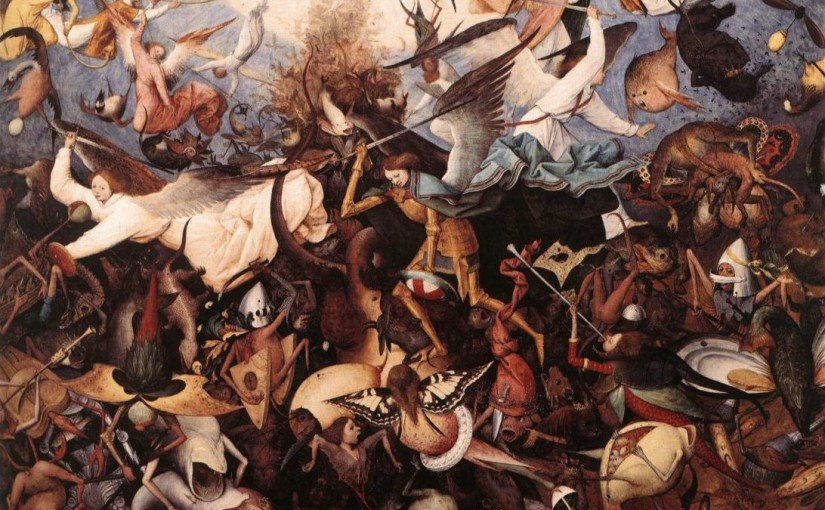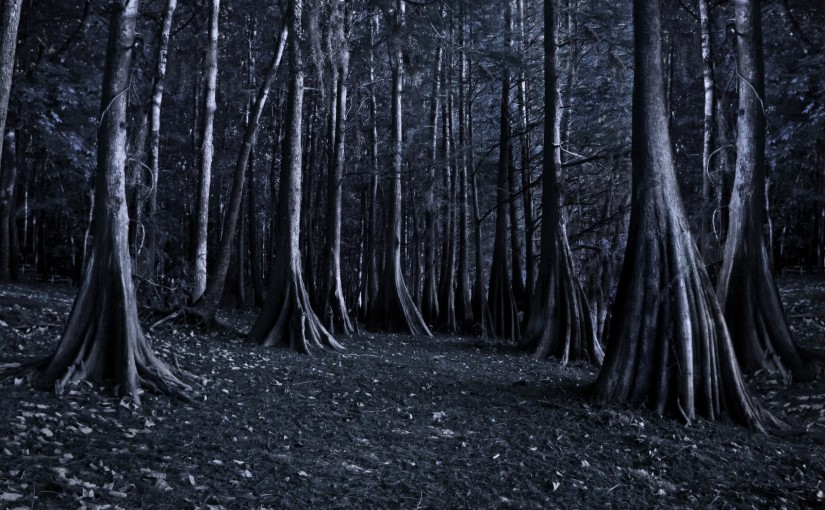The War in Heaven could not be won while the world was in the grip of the Black Iron Prison. I imagine it was similar to how in the ’90s we couldn’t think beyond the year 1999. 2000 and on: there was a mental block, a psychological barrier that prevented us in seeing past that magic number. The ’Prison was in a sense a mental construct, contained in the unseen world, gone uunnoticed by most everyone who lived regular lives within it. But we were all prisoners, you see. And even when we break free, habit still sometimes goes by the old pathways that had been dictated to us while we were still prisoners.
How it came to be that all the world was entombed within the Black Iron is another story, but there we were. (It has something to do with the myth of Adam and Eve, if you want a hint of what that story may be.) And there was the fact that the ’Prison was as like an eternal realm: after all, it was Hell. This touches on the salvation of Jesus Christ: that we all deserved to be damned, according to the Law, and the substance of such consequence was that Iron. And only by obeying the Law to the letter could Christ have gained victory over the Law. Nothing short of absolute perfection.
We know that only when we are squarely dealing with at least the trappings of the Age of Gold can our minds be free to pursue the grander things: needless even to say that the psychological environment required for the attempt has to be available. When we spend the last ounce of strength to grow a subsistence level crop, we have no other, higher, work we can accomplish. Only when we have an atmosphere of peace and education, in a society of opportunities, only then can we truly be free. The possibility, the potential needs to exist for greater things. Only when we are fed can we think about justice.
The War in Heaven happened when it could, and it happened “within” us: Philip K. Dick and me, the twins—when we had had experience of things large and small that was in and of the world. We had some prerequisites down when we were picked. Phil was a voracious reader, and I had the internet, both of us with a longing to comprehend the deeper things of the world. Such research and literature as to be useful in the fight could only have become so available as the Age of Gold emerged out of the Iron. Information is a change in potential: in knowing, what is possible changes. (And the universe, too, is made of information.)
Someone said that we must state the problem in a way that allows for a solution. Throughout the landscape of religious texts, philosophy, and whatever else, PKD was searching out a site where the War could be won. That means not only finding out all the myths that the world may hold (and many could be found out in the late 1970s), but also to properly interpret them. For meaning is effect. Like having a hunk of flint we could use it as a weapon, but sharpen it to point and you have something quite a little more. Nothing was mentioned about the War, in Phil’s frameworks, for Satan was to be ignorant of this purpose—thus Phil himself was not to know. For his own good. For everyone’s good.


